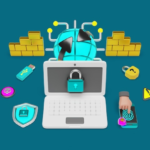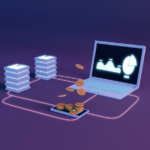In the world of digital assets, terms like cryptocurrency, tokens, and NFTs are frequently thrown around, often causing confusion among newcomers and seasoned investors alike. While they all belong to the broader category of blockchain-based assets, each serves distinct purposes and possesses unique characteristics. Let’s delve into the intricacies of crypto, tokens, and NFTs to demystify their functionalities, trading mechanisms, and real-world applications.
Cryptocurrency: The Pioneer of Blockchain
Cryptocurrencies like Bitcoin and Ethereum are perhaps the most familiar terms in this space. They function as digital or virtual currencies, utilizing cryptography for secure transactions and decentralized control. Cryptocurrencies operate on their own blockchain networks, serving as mediums of exchange, stores of value, and units of account. Their primary use case lies in facilitating peer-to-peer transactions and enabling borderless, censorship-resistant payments. Traders can buy, sell, and exchange cryptocurrencies through various online platforms called exchanges.
Tokens: The Versatile Digital Assets
Tokens, on the other hand, represent a broader category of digital assets built on existing blockchain platforms like Ethereum. They can represent anything from digital shares in a company to loyalty points in a rewards program. Tokens are created through smart contracts, which are self-executing contracts with the terms of the agreement directly written into code. ERC-20 tokens, a common standard on the Ethereum blockchain, are fungible tokens with identical properties, making them interchangeable. Traders can acquire tokens through initial coin offerings (ICOs), token sales, or by participating in decentralized finance (DeFi) protocols.
NFTs: Uniqueness in the Digital Realm
Non-fungible tokens (NFTs) have gained significant attention for their ability to represent ownership of unique digital assets, such as artwork, collectibles, and virtual real estate. Unlike cryptocurrencies and tokens, NFTs are indivisible and cannot be exchanged on a one-to-one basis due to their unique properties. Each NFT is distinct, verifiable, and cannot be replicated, making them ideal for proving ownership of digital assets in a decentralized manner.
NFTs are traded on specialized platforms, with transactions recorded on blockchain ledgers for transparency and authenticity.
Applications and Trading Mechanisms
Cryptocurrencies are predominantly used for financial transactions and investments, while tokens find applications in decentralized finance, gaming, and digital identity systems. NFTs investments, on the other hand, have revolutionized the art and entertainment industries, enabling creators to monetize digital assets and fans to own exclusive collectibles. Traders can engage with these assets through cryptocurrency exchanges, decentralized exchanges (DEXs), and specialized NFT marketplaces.
Get the latest updates, insights, and trends on digital assets, cryptocurrencies, and real-world assets. Our specialists are here to provide you with the knowledge and resources you need to stay informed and confident in this dynamic market. Join us now and stay knowledgeable with Kenson Investments.
Contact us today to explore the potential of cryptocurrencies, tokens, and NFTs.
Disclaimer: The information provided on this page is for educational and informational purposes only and should not be construed as financial advice. Crypto currency assets involve inherent risks, and past performance is not indicative of future results. Always conduct thorough research and consult with a qualified financial advisor before making investment decisions.
“The crypto currency and digital asset space is an emerging asset class that has not yet been regulated by the SEC and US Federal Government. None of the information provided by Kenson LLC should be considered as financial investment advice. Please consult your Registered Financial Advisor for guidance. Kenson LLC does not offer any products regulated by the SEC including, equities, registered securities, ETFs, stocks, bonds, or equivalents”














